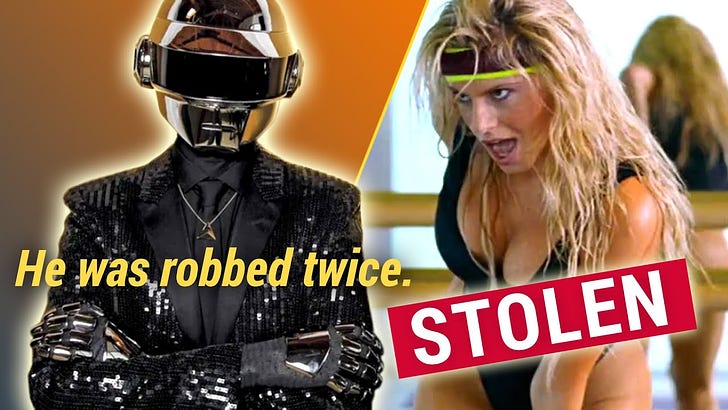🔴⚪️ TikTok zet de boel weer op z'n kop! 🙃
1. Hét nieuws van deze week
Vorige week was dat de overname van Bandcamp door Epic Games (duiding), deze week is dat wat mij betreft het bericht dat TikTok z'n eigen distributieplatform start, SoundOn.
Als je tekent bij een label, zorgen die dat je muziek op de afgesproken dag op Spotify, Apple Music, Tidal, Instagram en Deezer staat. Partijen als TuneCore, Distrokid e.a. regelen dat voor je als je geen deal hebt of liever de boel in eigen hand houdt. TikTok verleent die service nu dus ook:
TikTok's Global Head of Music Ole Obermann: “We’re making it easier for [independent artists] to get their music on TikTok, and we’re going to work with them to much better understand how to reach their audiences on TikTok. Through SoundOn we’re going to organise the ecosystem of unsigned artists in a way that doesn’t exist today and has never existed before. I think that’s going to make it easier for artists to find their fans. And then for labels and publishers to find those artists. The [industry’s] entire A&R process, I think, will become more efficient off the back of it.”
Wat is er nu precies spectaculair aan dit nieuws? Dat vat onderstaand twitterdraadje samen 🧵 Bill doet wat al te gemakkelijk over de prestatie die Spotify de afgelopen 12-13 jaar leverde (namelijk: muziekliefhebbers en masse laten betalen voor toegang tot in plaats van bezit van muziek, en zo een hele grote groep gebruikers maandelijks laten betalen voor muziek), maar hij raakt aan een cruciaal punt: TikTok doet veel beter wat YouTube en Spotify nog altijd zeer matig lukt, namelijk nieuwe (en ook oude) muziek introduceren bij een groot, jong en nieuw publiek. Spotify's algoritme en personeel maken de meest uitgebreide playlists, wekelijks je persoonlijke Discovery-lijst en Release Radar, tippen nieuwe muziek en artiesten op basis van je luistergedrag, maar het lukt ze niet met de giga impact die TikTok regelmatig heeft. Dit is echt een gat in Spotify's service, TikTok stapt daar overtuigend in en deelt de volgende klap uit. Lees deze draad:


Maar Spotify zit niet stil:
Daniel Ek's company suggests it could ink "recording deals" with on-the-rise artists and spot them sooner than record companies. [...] Spotify notes that a user flagged as an early adopter “need not have any knowledge that they are an early adopter, as the media server responds by streaming the requested media content, as it responds to all users.” It’s A&R, folks – but the listeners are doing all the work. Even if they “need not have any knowledge” they are doing so.
2. Héérlijk verhaal
Deze komt weer via Antony, en ik heb ervan genoten! Niet elke link in de Nielsbrief hoeft zwaar zakelijk nieuws of stevige achtergrondinfo te zijn, dit is gewoon een heerlijk stuk muziekgeschiedenis, mooi verteld:
3. Over die zakken met geld 💰💰💰
In De Machine en diverse Nielsbrieven besteed ik meermaals aandacht aan songcatalogi die voor veel geld van de hand gaan. Dylan, Neil Young en Diamond, de Chili Peppers, half Fleetwood Mac en Bowie's erfgenamen verkochten de afgelopen tijd voor flinke sommen geld de rechten op hun copyrights, masters of allebei. Afgelopen week verschijnen er diverse opiniestukken die kritische kanttekeningen en vraagtekens zetten bij die overnames. Niet alleen of die songcatalogi wel waard zijn wat ervoor wordt neergelegd, maar ook of artiesten die nu aan het onderhandelen zijn er niet verstandiger aan doen nog even te wachten of hun boedel helemaal niet te verkopen. Onnodig te zeggen dat ik die stukken met veel interesse las:
It seems rarely a week goes by without a “Sells Catalogue” headline making the rounds, and with some deals going for undisclosed amounts, this doubles as a fun guessing game, too. Yet somewhere between Tina Turner and Neil Diamond walking away victorious from the negotiating tables, Vulture had a bit of an existential crisis about what it means for musicians to sell their catalogues today. Are the prices overvalued? Undervalued? And what exactly is being bought by these corporations and record labels, anyway? George Howard, a strategic consultant and distinguished professor of music business and management at Berklee College of Music, was nice enough to explain how this trend speaks to larger issues in the industry, how Dylan’s sale may be the biggest anomaly of them all, and the longterm effects these deals have on music.
Randall Wixen explains his skepticism over Big Finance's keenness to buy music rights in 2022. "Is it really better for you or your family to get a lump sum of spendable cash right now, or is it a better financial plan for you to get the milk and keep the cow too?"
There is no doubt that the music catalogue sector has boomed, and there is also an argument that prices are inflated, at least in comparison to yesterday and today’s business. But for creators and investors who are prepared to take a long-term view, things might only just be starting.
Wat die catalogi dan waard zijn of nog worden? Ik riep het in De Machine en hier: de inkomsten over copyrights en masters zitten nog lang niet aan hun plafond denk ik. Google zal de komende tijd door labels verder onder druk worden gezet om eindelijk fatsoenlijk af te rekenen over muziek op YouTube, nieuwe platforms als TikTok betekenen nieuw publiek, nieuwe exploitatiemogelijkheden en dus nieuwe inkomstenstromen en het gebruik van muziek in films, games, TV-series, op je loopband of binnenfiets zal de waarde van muziek nog veel verder vergroten. Check die dubbele groeicijfers over 2021 in de US of deze ongelofelijke percentages:
4. Geschiedenislesje
Dat waren weer 4 items. Volgende week 4 nieuwe!
Groet,
Niels



